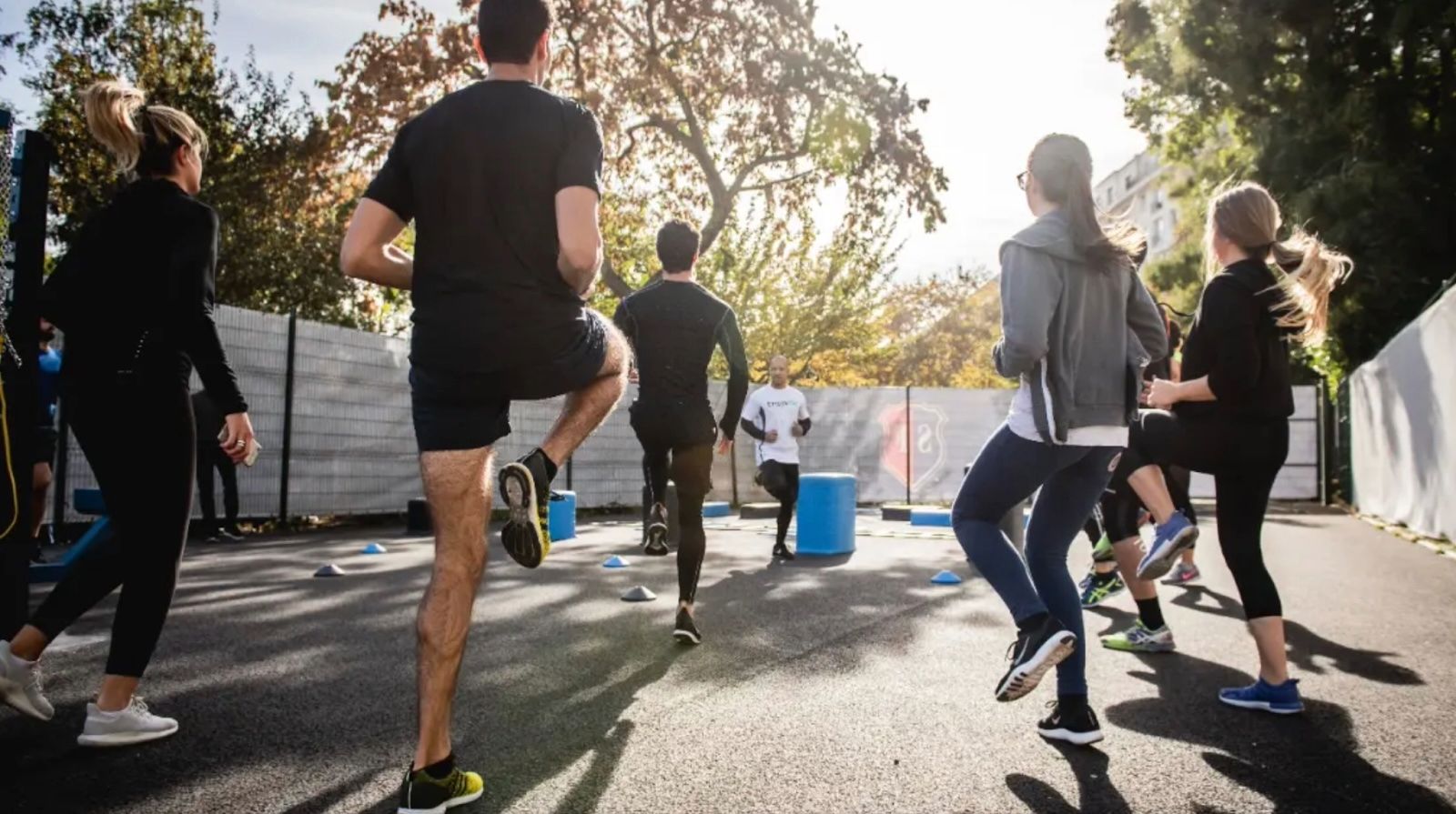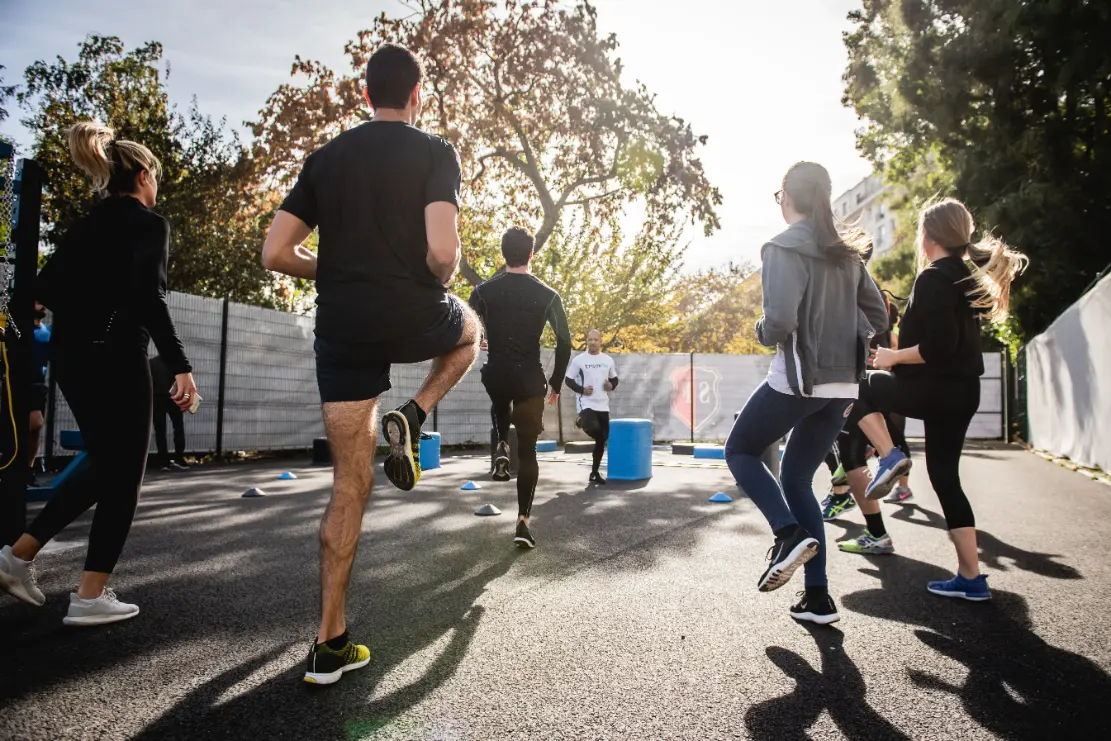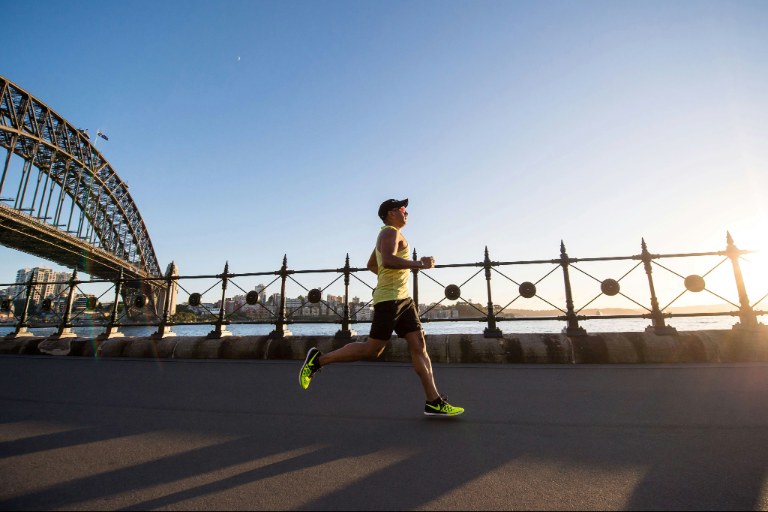How to Run a 21-minute 5K: The Ultimate Guide to Breaking 21 Minutes
Starting your running journey should feel exciting, not overwhelming. Our training plans give you the structure, support, and flexibility you need to go from your first step to running 5k, no matter your starting point.

Running a 5K in 21 minutes is a milestone that many runners set their sights on. It shows you’ve built a solid mix of speed and endurance, and that your training is starting to move beyond simply finishing the distance. At this stage, you’re proving to yourself that you can train with consistency, purpose, and the discipline needed to unlock faster times.
Of course, hitting 21 minutes doesn’t just happen by chance. It takes more than showing up on race day and running hard. You’ll need to train with structure, pace yourself wisely, and have the mental strength to stay locked in when the effort starts to bite. The encouraging part? With the right approach and some patience, 21 minutes is well within reach, whether it’s for your weekly parkrun or your next 5K race.
In this complete guide, you’ll find everything you need to run a 21-minute 5K:
- Exact target paces and splits so you know what to hit every kilometre.
- Fitness benchmarks to check if you’re ready to take it on.
- A proven training plan with the sessions you need to build speed and endurance.
- Race-day tactics to pace yourself smartly and finish strong.
- Expert tips and real success stories from runners who’ve nailed 21 minutes themselves.
No guesswork, no wasted effort - just clear, practical advice to help you smash your milestone and enjoy the journey.
Ready? Let’s go make that 21-minute 5K a reality.
What Does It Take to Run a 21-minute 5K?

To run a 5K in 21 minutes, you’ll need to lock into a steady pace of around 6 minutes 45 seconds per mile, or 4:12 per kilometre. That’s the standard you’ll be aiming for – every mile, every kilometre – to finish right on target.
Put simply, you should expect to cover each kilometre in just over four minutes, with very little margin for slowing down if you want to stay on track.
It might sound straightforward on paper, but in practice it’s a real test. As the effort builds, it takes more than speed alone to hold that rhythm. You’ll need endurance in your legs, confidence in your pacing, and the determination to keep pushing when fatigue sets in.
Who is this goal realistic for?
If you’re already finishing 5Ks in the 22:00–23:30 range, you’re within striking distance of a 21-minute result with focused training. At this point, you’ve developed a decent aerobic base, but to take the next step you’ll need to sharpen your speed, lift your lactate threshold, and practice pacing discipline.
And don’t be put off if your current PB is a little outside that window. Many runners surprise themselves when they start training specifically for the goal. With smart workouts and consistency, that 4:12 per kilometre pace will soon feel a lot less intimidating – and eventually, second nature.
Are You Ready for a 21-minute 5K?
Before jumping into training at goal pace, it’s important to make sure your current fitness is in the right range. Pushing too hard too soon can lead to frustration or even injury. These simple checks will help you see if you’re ready to train for roughly 4:12/km pace with confidence.
Benchmark Sessions
1. The 3 x 1K Repeats Test
Find a track or a flat stretch of road and run 3 x 1K repeats with 2–3 minutes of easy jogging or walking between efforts.
- Target each kilometre in about 4:05–4:10.
- If you can complete all three reps feeling solid, and know you could manage another one or two if needed, you’re in a good place to take on 21-minute pacing.
2. The 1-Mile Time Trial
Another way to check your readiness is a 1-mile effort at close to maximum.
- Warm up thoroughly, then run one mile hard but controlled.
- If you can run around 6:30–6:40 and finish feeling like you could extend it with some training, you’re likely close to the level required.
These short tests are a reliable way to see if your mix of speed and endurance is strong enough for the goal, or if you’d benefit from building your base first.
Check Your Weekly Mileage Base
Hitting 21 minutes isn’t only about intervals. You’ll need a solid aerobic foundation so your body can handle harder sessions, recover properly, and hold form late in the race.
- Aim to be consistently running 25–35 km (15–22 miles) per week for at least 4–6 weeks before jumping into heavy speedwork.
- If you’re running less than this, spend some time building gradually until you feel comfortable at that level.
A dependable mileage base combined with some light strides or pickups will make you far more prepared for tougher workouts and help you stay injury-free as you progress.
Key Training Principles
To hit a 21-minute 5K, you need a mix of aerobic fitness, speed development, and pacing control. It’s not just about running fast in training – it’s about structuring your week so every run has a clear purpose. Here are the main elements to focus on:
1. Build Your Weekly Mileage
A strong aerobic base is what allows you to hold race pace when fatigue kicks in. Without it, speedwork won’t stick.
- Aim for 25–35 km (15–22 miles) per week if you’re aiming for 21 minutes.
- Add mileage gradually, increasing by no more than 10 percent each week.
- Keep the majority of your runs easy and conversational – the faster sessions will provide enough intensity.

2. Prioritize Interval Training
Intervals are key for getting comfortable at faster paces and improving your efficiency.
- Sessions like 6 x 800m at race pace with jog recoveries or 8 x 400m a little quicker than goal pace are excellent.
- Always warm up properly before starting, and jog or walk between repeats.
- One solid interval workout per week is usually enough alongside your other training.

3. Add Tempo Efforts
Tempo runs bridge the gap between endurance and speed by training your body to sustain hard efforts for longer.
- Run at roughly 4:20–4:25 per km, or around 10–15 seconds slower than your race pace.
- Start with 15–20 minutes at tempo effort after a warm-up and build from there.

4. Always Include the Long Run
Even for a 5K, a weekly long run builds strength and resilience.
- Aim for 60 minutes at a relaxed pace.
- Think of it as time spent on your feet, not a workout to push the pace.
Over time, it will help you finish stronger in races.

5. Strength and Mobility Work
Strength training supports better form, reduces injury risk, and makes you more powerful at faster speeds.
- Focus on single-leg strength, glute activation, and core stability.
- Add short mobility sessions for hips, calves, and hamstrings.
Two short sessions of 15–20 minutes each week is plenty to see benefits.

Pacing & Race-Day Strategy
As you step onto the start line, your plan matters just as much as your fitness - and the right pacing strategy can carry you all the way to a 21-minute breakthrough. Here's how to set it up:
1. Warm Up Properly
Starting cold is one of the fastest ways to sabotage your race. A good warm-up ensures you’re ready to settle into pace smoothly.
- Begin with 10–15 minutes of relaxed jogging to raise your heart rate and loosen muscles.
- Add dynamic drills like leg swings, lunges, and hip circles to increase mobility.
- Finish with 4–5 strides at just quicker than goal pace (about 85–90% effort) so your legs are primed for the first kilometre.
By the time the gun goes off, you should feel awake, light, and ready to run at pace without straining.

2. Start Smart
It’s easy to get caught up in the excitement and push too hard early, but you’ll pay for it later.
- Stick to your goal pace: roughly 4:12 per km (6:46 per mile).
- Aim to run the first kilometre feeling steady, not desperate.
If it feels comfortable, you’re in the right spot. The effort will naturally build as the race unfolds.

3. Stay Composed in the Middle
The second and third kilometres often decide the race. This is where discipline matters most.
- Focus on relaxed breathing and holding your rhythm.
- Keep your shoulders loose and your stride light and quick.
- If you feel yourself slipping, latch onto a nearby runner and use them as a marker to hold pace.

4. Finish with Intent
The final kilometre is about squeezing out everything you’ve trained for.
- Remind yourself it’s less than 5 minutes of running – you can hold on.
- Pick a landmark about 400m from the line and start your push.
- Drive your arms, keep your form tall, and focus on moving smoothly through to the finish.
Every second counts, and with smart pacing you’ll have the energy left to close strong.

Mental Tips for Breaking 21

Running a 21-minute 5K isn’t only about fitness. Your training will get your body ready, but it’s your mindset that keeps you moving when fatigue sets in. Staying mentally strong is what helps you hold pace in those tough middle kilometres instead of slipping back. Here are some ways to sharpen that mental edge:
Break the Race into Segments
Don’t let the distance feel overwhelming. Mentally divide the 5K into five 1K blocks, each with its own purpose:
- 1K: Find your rhythm and settle into pace.
- 2K: Keep it smooth and relaxed.
- 3K: Stay focused, this is where concentration counts.
- 4K: This kilometre always feels hard – remind yourself everyone feels the same.
- 5K: Time to dig deep and empty the tank.
Taking the race one section at a time makes it feel far less intimidating.
Use Positive Mantras
When your brain tells you to back off, a simple manta can help keep you locked in. Pick one to repeat in time with your stride:
- “Strong and steady.”
- “Keep moving”
- “Light and quick”
Focus on Breathing
As effort rises, use your breath to stay calm. Aim for a steady rhythm such as two steps in, two steps out. This prevents you from tightening up and helps you keep form under pressure.
Visualise Success
Before race day, practise picturing yourself running smoothly, hitting around 4:12 per kilometre, and finishing strong. Imagine crossing the line and seeing 21:xx on the clock. That image can be a powerful boost when things get tough.
Nutrition & Gear for a 21-minute 5K

Even for a 21-minute 5K, what you eat and wear can make a noticeable difference. The goal is to keep things simple (and familiar) so you can focus 100% on your pace, not your stomach or your kit.
The Night Before
- Have a carb-rich dinner: think pasta, rice, or potatoes with lean protein.
- Keep it balanced and not too heavy. You want to top up your glycogen stores without feeling sluggish.
- Drink plenty of water during the day, but avoid guzzling large amounts right before bed.
Race Morning
- Go for something light and familiar: a banana, a slice of toast with honey, or a small bowl of cereal.
- Eat 2–3 hours before the race if possible, then sip water up until start time.
- Skip anything spicy, greasy, or brand-new. Race day is not the moment to try something different.
Gear: Keep It Light and Tested
- Choose running shoes that feel light and fast, but only if you’ve broken them in during training.
- Stick to gear you’ve worn before. Even small issues like rubbing socks can spoil your run.
Check the forecast and dress for the conditions. Layers are fine for warming up, but strip down to your race kit for the start.
Frequently Asked Questions
Yes! A 21-minute 5K is still a very strong time. It places you comfortably ahead of most recreational runners and shows that you have both speed and endurance.
Is a 21-minute 5K good?
Yes! A 21-minute 5K is still a very strong time. It places you comfortably ahead of most recreational runners and shows that you have both speed and endurance.
How long does it take to train for a 21-minute 5K?
Many runners can reach 21 minutes within 8–16 weeks of focused training if they’re already running in the 22–23 minute range. Consistent mileage and speedwork are key.
What pace is a 21-minute 5K?
You’ll need to run about 6:45 per mile or 4:12 per kilometre to finish in 21 minutes.
Do I need to run every day to hit 21 minutes?
No. Most runners improve best on 4–5 days of running per week, with a mix of easy runs, one interval workout, one tempo effort, and a longer run. Rest days are just as important as training days.
What kind of weekly mileage is ideal?
For most runners, 20–30 km (12–18 miles) per week is enough to support a 21-minute 5K, provided you include some faster running. Higher mileage can help, but only if increased gradually.

